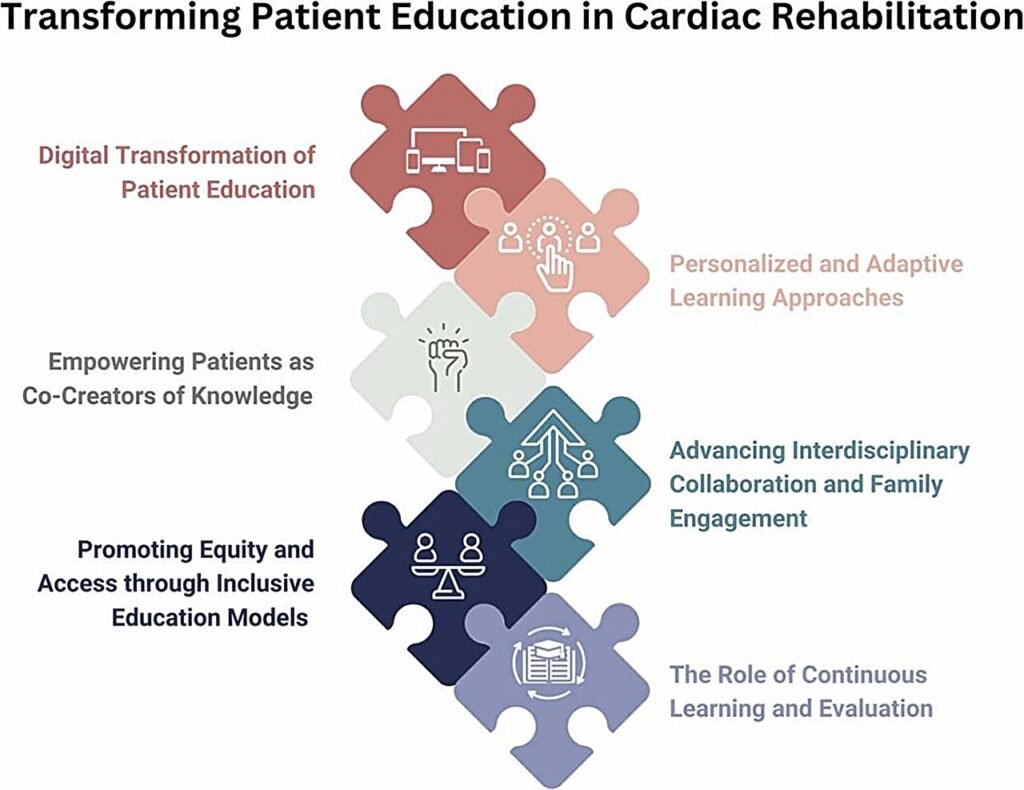Patient education plays a crucial role in empowering patients to take control of their health and well-being. Dr. Gabriela Ghisi, an Affiliate Scientist at the KITE Research Institute, University Health Network, has dedicated her career to exploring how patient education can transform lives, particularly in the context of cardiac rehabilitation (CR).
Growing up and starting her career in Brazil, Dr. Ghisi witnessed firsthand the impact of empowering patients with knowledge. She saw individuals with cardiovascular disease become active participants in their recovery journey once they understood their condition and how to manage it. This experience inspired her to delve deeper into the field of patient education, leading her to propose a new vision for CR education in a recent discussion paper published in Patient Education and Counseling.
In her vision, Dr. Ghisi emphasizes the importance of patient-centered, inclusive, and empowering education. She advocates for a participatory approach where patients are actively involved in designing and delivering educational materials. This ensures that the content is relevant, respectful, and tailored to individual needs.
Furthermore, Dr. Ghisi highlights the need for interdisciplinary collaboration in CR education. By bringing together nurses, physical therapists, dietitians, psychologists, and peer mentors, patients can benefit from a holistic and personalized approach to learning. This approach considers the unique backgrounds, goals, and learning preferences of each patient.
Personalization and adaptive learning are also key components of Dr. Ghisi’s vision. By tailoring content and delivery methods to align with each patient’s readiness, literacy level, and emotional state, education can be more effective and engaging. Digital tools play a crucial role in facilitating adaptive learning platforms that respond to individual learning styles.
In addition, Dr. Ghisi emphasizes the importance of embracing digital transformation in education to enhance accessibility and engagement. By leveraging technology to deliver content through videos, apps, online platforms, and hybrid models, CR programs can reach a wider audience and bridge gaps in access to care.
Equity and access are essential principles in Dr. Ghisi’s vision for patient education in CR. She advocates for culturally adapted materials, outreach to underserved communities, and addressing social determinants that impact patients’ ability to engage with health information. By prioritizing inclusivity, education can be more effective and sustainable in promoting cardiovascular health.
Continuous evaluation and feedback are also crucial aspects of Dr. Ghisi’s approach to patient education. By listening to patients’ experiences and adapting education strategies based on their input, CR programs can ensure that education remains relevant, respectful, and empowering.
Overall, Dr. Ghisi’s vision for patient education in CR represents a paradigm shift in how education is conceptualized and delivered. By centering education around patients’ needs, experiences, and voices, CR programs can play a transformative role in promoting equitable and sustainable cardiovascular health.


